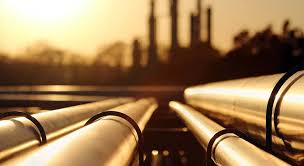Nova Scotia gas prices rise to $1.80 per litre, diesel up 34¢ in 3 days

The Nova Scotia Utility and Review Board plans to invoke its interrupter clause for diesel Friday night for the third day in a row, during a week that’s seen diesel prices jump by more than 34 cents in three days.

“This change is necessary due to significant shifts in the market price of diesel oil,” the NSUARB said in a release. The change will take effect at midnight.
This comes as diesel prices in Nova Scotia had already jumped by 8.9 cents during the regular price change on on Friday.
As of Friday, the cost of self-service diesel ranged between 236.3 cents per litre and 238.6 cents in the Halifax area. That’s 34.6 cents higher than it was during last Friday’s price change.
Prices are the highest in the Cape Breton area, where the cost for a litre of diesel is now between 238.3 cents and 240.6 cents.
Trending Stories
-
14-year-old boy held on $1M bond in murder, sex assault of 10-year-old girl
-
6 Russian oligarchs have died in alleged suicides since start of 2022
Story continues below advertisement
Read more: Global food, fuel prices won’t ease until 2024 due to Ukraine war: World Bank
The Nova Scotia Utility and Review Board also invoked the interrupter clause on Wednesday and Thursday, raising the price of diesel by 6.1 cents and 19.6 cents, respectively. The interrupter clause is invoked when there are significant shifts in the market price of fuel.
The cost of gas also went up by 5.7 cents overnight, bringing the price for regular unleaded self-serve gas to between 179.8 and 182.2 cents in the Halifax area, and between 181.7 and 184.1 cents in the Cape Breton area.
Friday’s interrupter clause, which allows for the utility and review board to adjust prices outside of the regular weekly change, will not affect the price of regular gasoline, the NSUARB said.
The cost of food and fuel across the country have been on the rise ever since Russia’s invasion of Ukraine, which has disrupted global supply chains. The World Bank says these price increases likely won’t ease until at least 2024.
The bank expects energy prices to rise more than 50 per cent in 2022 before easing in 2023 and 2024, while non-energy prices, including agriculture and metals, are seen climbing by almost 20 per cent in 2022 before moderating.
© 2022 Global News, a division of Corus Entertainment Inc.


 Canada
Canada Argentina
Argentina  Australia
Australia  Austria
Austria  Brazil
Brazil  Germany
Germany  Ireland
Ireland  Italy
Italy  Malaysia
Malaysia  Mexico
Mexico  New Zealand
New Zealand  Poland
Poland  South Africa
South Africa  United Kingdom
United Kingdom  United States
United States 





















